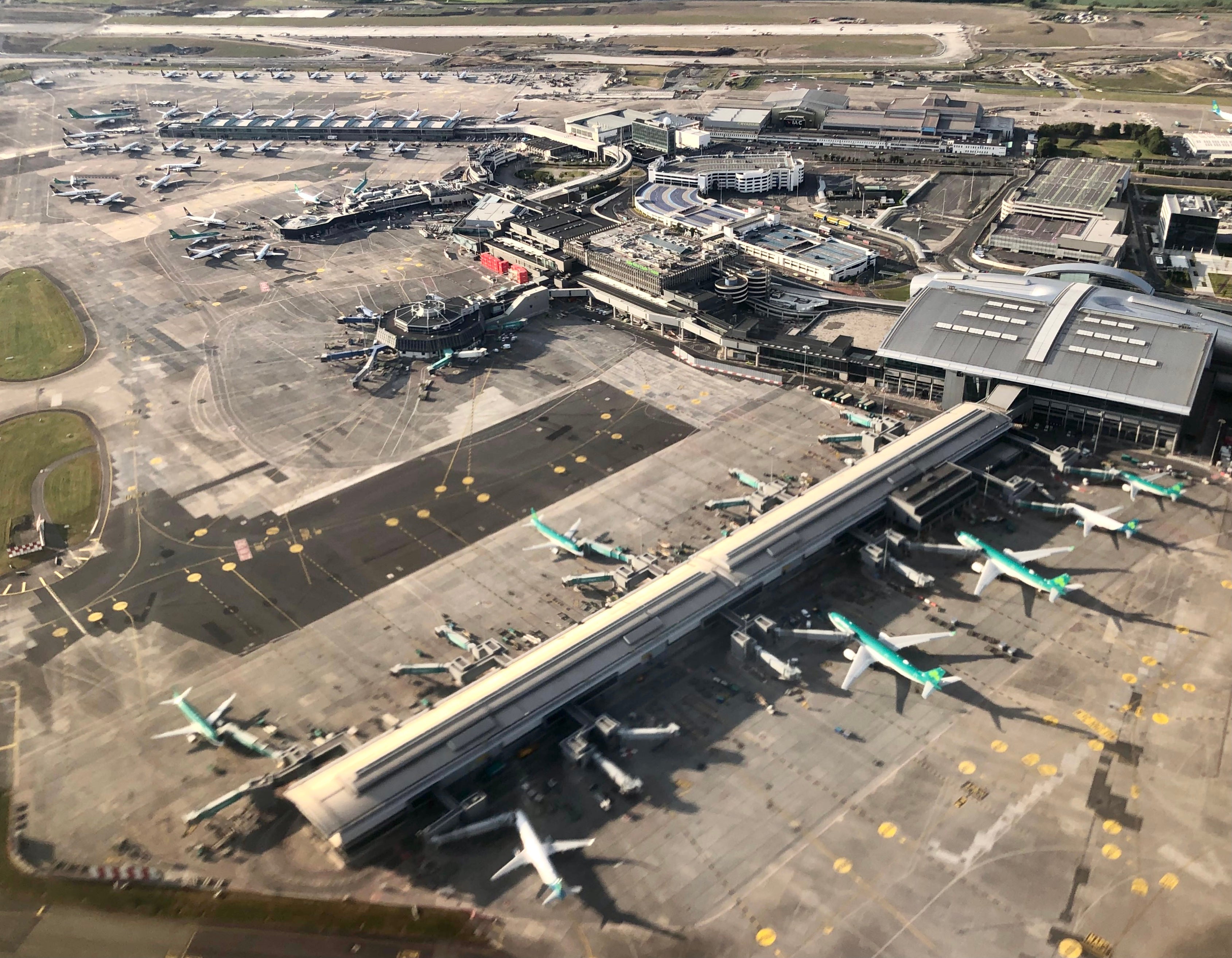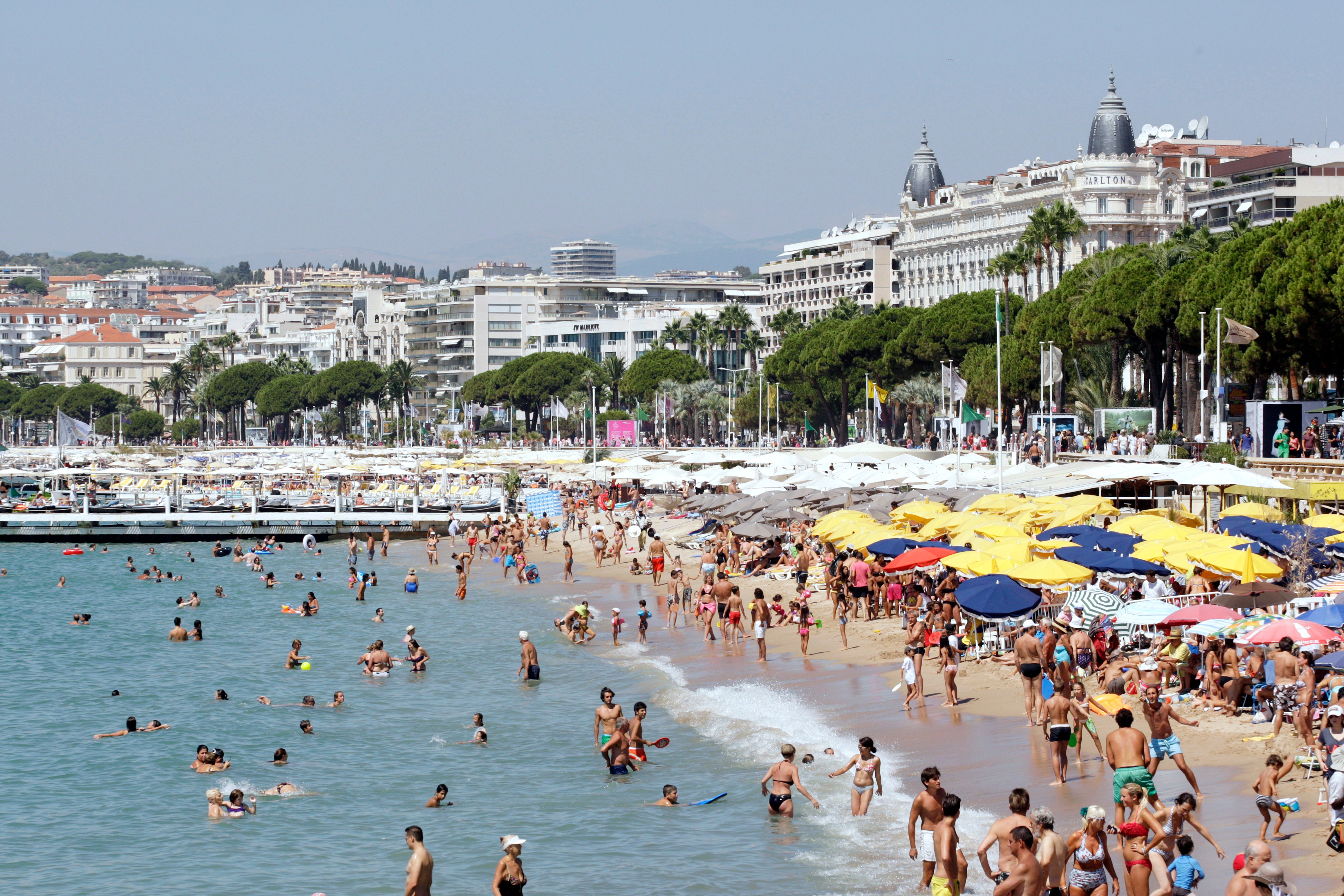Will Spain turn me away without proof of funds?
Simon Calder answers your questions on satisfying border control so you can support yourself, as well as flight delays, what to do around Cannes, and the effects of heat on rails


Q Help! I am going to Spain at the weekend and have read a story that says to be allowed in you need to prove you have a return ticket, produce a statement to show you have enough money in the bank for the duration of your stay, and provide proof of where you are staying. As I am staying with friends, how do I do that?
Name supplied
A Only now, 18 months on from the effective date of the UK leaving the European Union, is the scale of changes to travel as a result of Brexit becoming apparent.
The UK asked to be treated as third-country nationals, which means that visitors are obliged to carry proof of onward or return travel from your EU destination. This will normally just be a booking for a flight, train or ship – though if your plans are fluid you can show you have enough money for “return to the country of origin or transit to a third country into which he or she is certain to be admitted”.
Next, “evidence of sufficient means of subsistence”. The European Commission actually quantifies this as “average prices in the member state(s) concerned for board and lodging in budget accommodation, multiplied by the number of days stayed”. Bank cards do not in themselves reveal your wealth, so you could take a credit card statement showing your spending limit, or a bank statement to back up your debit card. But confidence that you can convince a frontier official that you are a person of good standing and will not become a financial burden is a reasonable alternative.
The final aspect: accommodation. A booking for hotel, villa or Airbnb should suffice, but if you are staying privately then you should have an invitation letter from your host.
Having said all that, the chances that an average tourist is asked for any of these is low. In a dozen EU trips since Brexit, I have been asked only once – in a half-hearted way by bored passport officials in the Netherlands. They were not interested in pursuing anything more after seeing my flight reservation home.

Q In May we were flying from Dublin to London Heathrow. Despite all the reports of chaos, with people queuing out of the door, we actually got through security quickly. The plane was delayed by three-and-a-half hours, though, because it was late arriving from Heathrow. The airline is refusing compensation for the delay on the basis that the cause was long security queues at Heathrow and was thus “an extraordinary circumstance” under the European air passengers’ rights rules. Is it worth pursuing a claim?
Ben T
A In your position I would feel doubly annoyed: first, for the delay, and second for being refused £220 per person compensation under the EU261 rules governing passenger rights.
Your exasperating experience sums up the odd nature of these regulations: you passed the (fairly arbitrary) test of a three hours-plus delay in arrival. Your inconvenience was the same regardless of whether the airline was to blame. For rail passengers that is recognised: you are compensated whether or not the train operator is at fault. But in aviation, the airline can avoid paying out if it successfully demonstrates “extraordinary circumstances” were responsible.
Long security queues at Heathrow are rare, and an airline could probably successfully claim it as an extraordinary circumstance. But I would be very surprised if a passenger being stuck in a security queue that had the effect of delaying a plane by three hours or more would fit that description. In most situations, an airline might allow an extra 10 or 20 minutes, but after that staff would simply offload the passenger’s bags, if any were checked in, and the plane would leave.
I daresay the queue contributed to the delay, but it is highly likely that other factors were involved. Perhaps, as often happens, delays had built up during the day: some bad weather here, air traffic control restrictions there. Whatever the explanation, the EU makes it quite clear: “The airline has to prove this by providing, for example, extracts from logbooks or incident reports.” So I suggest you ask for the airline’s justification for rejecting your claim.

Q We are going to be in Frejus, just east of Cannes in the south of France, for two weeks in August. What are your recommendations in that part of the world?
Simon P
A You will not be the only people on that stretch of the French Riviera in August, but there are many reasons for the magnetic attraction of the Cote d’Azur to tourists: a magical combination of towns and villages sandwiched beautifully between the Mediterranean and the mountains.
Frejus is well placed for making the most of them – but for all the trips I prescribe, please don’t be tempted to drive. The town has a railway station with frequent local trains to Cannes; with connections there (and, in the other direction, at Les Arcs Draguignan) you can reach just about anywhere along the coast.
Cannes itself is a joy, with the walk around Pointe Croisette an excellent warm-up for my coastal highlight: from Juan-les-Pins to Antibes, the pretty way. This takes you through shady pines (hence the Pins part of the name) and around a series of headlands, ending up in the most agreeable town of Antibes – complete with a Picasso museum and a choice of good places to replenish.
The coast is only part of the story: from Cannes, take the train in less than half-an-hour inland to Grasse, the aromatic source of so many fragrances. Ideally, construct a complete circuit, taking a bus (standard fare €3 as far as I recall) along the hills to Fayence, and another back to Frejus.
Finally, you are spoilt for city choices: Nice and Marseille will each reward a day’s excursion. The journey, though, eats into your time: 90 minutes or less to Nice but a couple of hours minimum to Marseille. Perhaps save the latter for a future trip.

Q On the hottest day in history I saw on a Network Rail tweet: “We expect today’s temperatures to expand each kilometre of rail by 30cm. We have about 30,000km of rail on a normal day but the network is 9km longer today!” Is that actually true?
SW
A Not exactly. The tweet is part of a thread that was sent out on social media on Tuesday afternoon. It began: “Why don’t rails get hot in Europe? The truth is they do. But in countries typically hotter than ours, rails are stressed to withstand higher temperatures. Rails are pre-stressed to help them resist the effects of high temperatures. In Britain, rails have a stress-free temperature of 27 degrees – the UK mean summer rail temperature.”
Ian Robins, a well-regarded rail engineer, told me: “The whole issue of pre-stressing is a complex science. Destressing and rail locking are part of this for maintaining the correct stresses. Rails are loosened from their fixings, a few trains are run over them at reduced speed to release any built-up stresses, then relocked onto the sleepers at the ambient temperature of, in this case, 27C.”
Unconstrained, the coefficient of expansion for steel is equivalent to around 1.1cm per km for each degree above the stress-free temperature. The best way to demonstrate the Network Rail assertion is not strictly accurate is to consider the 633km distance between Edinburgh Waverley and London King’s Cross. Were the East Coast Main Line track from the Scottish to English capitals really extended at peak heat by 30cm (about one foot) for each kilometre, with the Scottish end remaining fixed, the line from the would end 190m south of the existing platforms at King’s Cross – in the middle of McGlynn’s Free House on Whidborne Street, causing considerable disarray for drinkers as well as traffic on the busy Euston Road.
Continuous welded rails, the type used on most main lines, are constrained from extending by the next rail along. They are pressurised and – despite being firmly attached to the sleepers – prone to buckling. So be kind to them, on Tuesday no trains at all ran on the East Coast Main Line. Elsewhere, express trains were slowed down. The force applied by a train weighing several hundred tonnes is less severe at lower speed. An analogy: a champagne bottle is under pressure, and the more energetically you shake it, the more likely it is to pop.
Email your question to s@hols.tv or tweet @simoncalder






Join our commenting forum
Join thought-provoking conversations, follow other Independent readers and see their replies
Comments